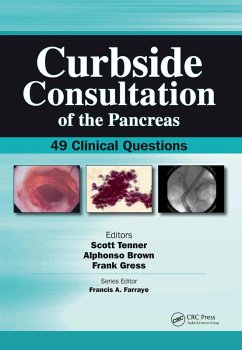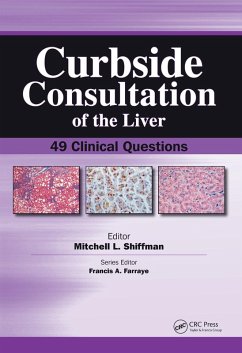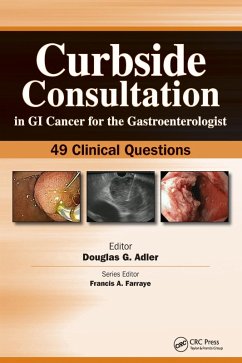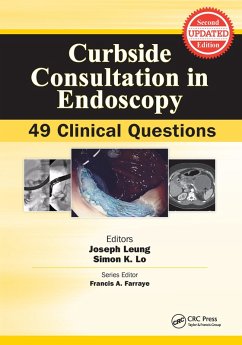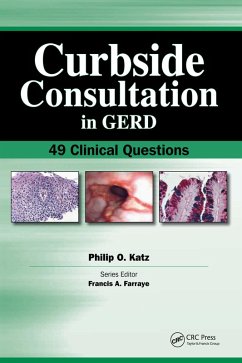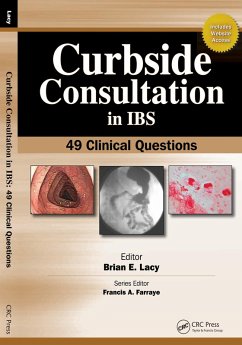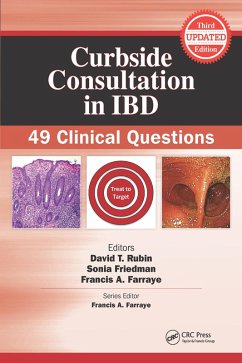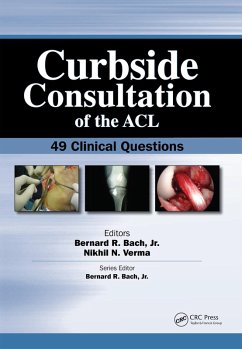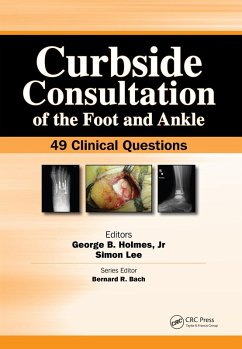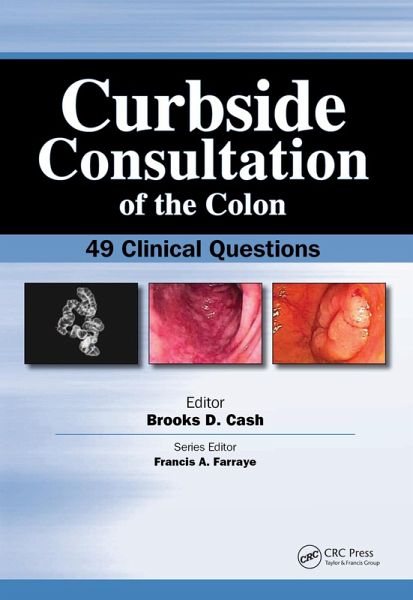
Curbside Consultation of the Colon (eBook, PDF)
49 Clinical Questions
Redaktion: Cash, Brookes
Versandkostenfrei!
Sofort per Download lieferbar
103,95 €
inkl. MwSt.
Weitere Ausgaben:

PAYBACK Punkte
52 °P sammeln!
Are you looking for concise, practical answers to questions that are often left unanswered by traditional medical searches? Are you seeking brief, evidence-based advice for complicated cases or complications? Curbside Consultation of the Colon: 49 Clinical Questions provides quick and direct answers to the thorny questions commonly posed during a "curbside consultation" between colleagues. Dr. Brooks D. Cash has designed this unique reference, which offers expert advice, preferences, and opinions on tough clinical questions commonly associated with the colon. The unique Q&A format provides qui...
Are you looking for concise, practical answers to questions that are often left unanswered by traditional medical searches? Are you seeking brief, evidence-based advice for complicated cases or complications? Curbside Consultation of the Colon: 49 Clinical Questions provides quick and direct answers to the thorny questions commonly posed during a "curbside consultation" between colleagues.
Dr. Brooks D. Cash has designed this unique reference, which offers expert advice, preferences, and opinions on tough clinical questions commonly associated with the colon. The unique Q&A format provides quick access to current information related to the colon with the simplicity of a conversation between two colleagues. Numerous images, diagrams, and references are included to enhance the text and to illustrate the treatment of the colon.
Curbside Consultation of the Colon: 49 Clinical Questions provides information basic enough for residents while also incorporating expert advice that even high-volume clinicians will appreciate. Gastroenterologists, fellows and residents in training, surgical attendings, and surgical residents will benefit from the user-friendly and casual format and the expert advice contained within.
Some of the questions that are answered:
Dr. Brooks D. Cash has designed this unique reference, which offers expert advice, preferences, and opinions on tough clinical questions commonly associated with the colon. The unique Q&A format provides quick access to current information related to the colon with the simplicity of a conversation between two colleagues. Numerous images, diagrams, and references are included to enhance the text and to illustrate the treatment of the colon.
Curbside Consultation of the Colon: 49 Clinical Questions provides information basic enough for residents while also incorporating expert advice that even high-volume clinicians will appreciate. Gastroenterologists, fellows and residents in training, surgical attendings, and surgical residents will benefit from the user-friendly and casual format and the expert advice contained within.
Some of the questions that are answered:
- What is the appropriate evaluation for fecal incontinence?
- What colonic infections are associated with AIDS?
- What are the current colorectal cancer screening and surveillance recommendations?
- What is the best way to manage chronic constipation?
- Where do probiotics fit into the management of IBS?
- How should diverticulitis be managed?
- What is colonic pseudo-obstruction and how is it managed?
Dieser Download kann aus rechtlichen Gründen nur mit Rechnungsadresse in A, B, BG, CY, CZ, D, DK, EW, E, FIN, F, GR, HR, H, IRL, I, LT, L, LR, M, NL, PL, P, R, S, SLO, SK ausgeliefert werden.




